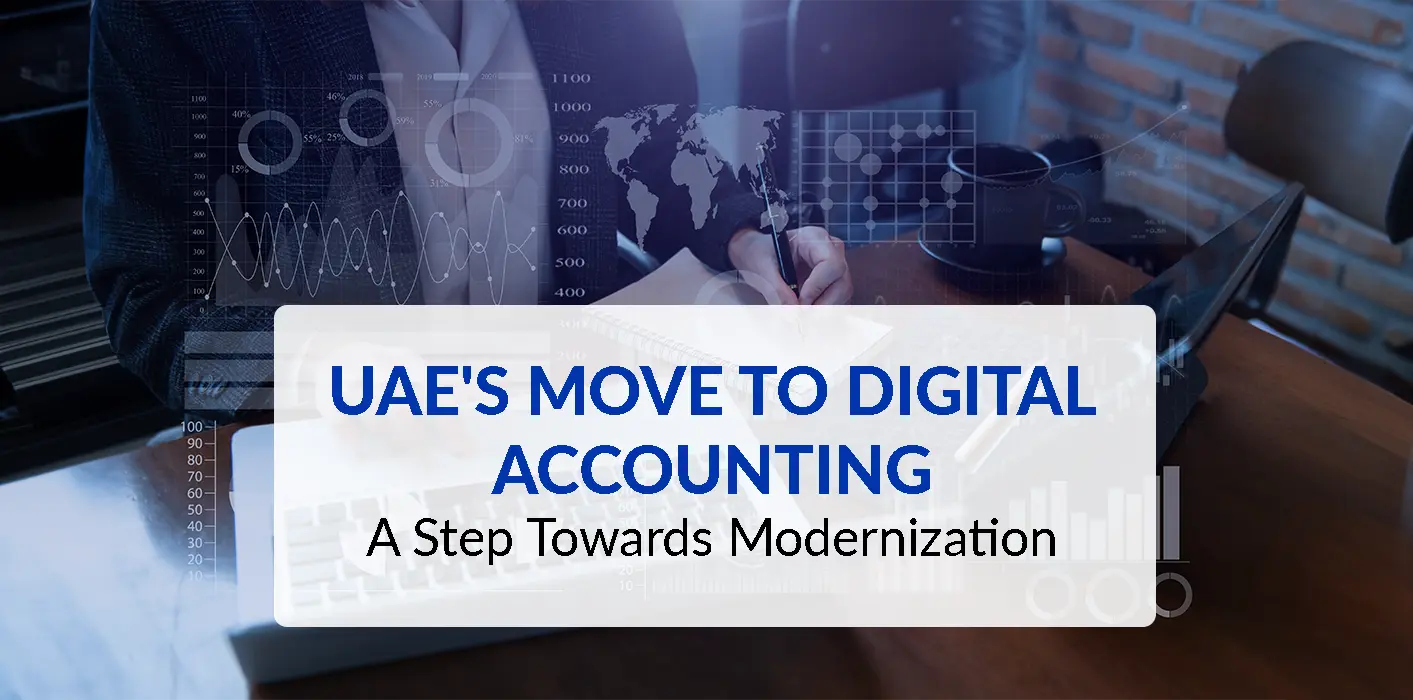In recent years, the United Arab Emirates (UAE) has witnessed a profound transformation in its economic landscape, with technological advancements revolutionising various sectors. Among these, the field of accounting has undergone a significant paradigm shift, transitioning from traditional methods to embracing digital solutions. This shift is not only reshaping the way businesses manage their finances but also enhancing efficiency, accuracy, and transparency in financial reporting.
The Era of Cloud Technology
In the UAE, the adoption of cloud technology has emerged as a game-changer in the realm of accounting. Here’s how:
– Accessibility: Cloud-based accounting software enables professionals to access financial data from anywhere, anytime, facilitating remote work and collaboration.
– Cost-effectiveness: With no need for extensive hardware installations or maintenance, cloud accounting offers a cost-effective solution for businesses of all sizes.
– Security: Leading cloud platforms employ advanced security measures, safeguarding sensitive financial information against cyber threats and unauthorized access.
As businesses in the UAE increasingly recognize the benefits of cloud technology, the demand for cloud-based accounting solutions continues to soar.
Automating Efficiency: Redefining Workflow Dynamics
The automation of routine accounting tasks has revolutionized workflow dynamics, offering several advantages:
– Time-saving: Automated processes eliminate manual data entry and reconciliation, freeing up valuable time for accountants to focus on strategic initiatives.
– Accuracy: By minimizing human errors, automation ensures greater accuracy in financial calculations and reporting, reducing the risk of compliance issues.
– Scalability: Automated systems are scalable, allowing businesses to handle growing volumes of financial transactions without compromising efficiency.
In the UAE, businesses are embracing automation to streamline their accounting operations and drive productivity gains.
Digitizing Finance: The Rise of Accounting Apps
The proliferation of accounting apps has empowered businesses to digitize their finance functions, offering:
– Convenience: Accounting apps provide user-friendly interfaces and intuitive features, simplifying complex financial tasks for non-accounting professionals.
– Real-time insights: With real-time data synchronization, accounting apps offer up-to-date insights into financial performance, enabling informed decision-making.
– Integration: Many accounting apps seamlessly integrate with other business tools and platforms, facilitating a holistic approach to financial management.
As more businesses in the UAE adopt accounting apps, the landscape of financial management is undergoing a digital revolution.
Decoding Insights: The World of Data Analytics
Data analytics tools are unlocking valuable insights from financial data, offering:
– Predictive analysis: By analyzing historical trends and patterns, data analytics enable businesses to forecast future financial performance and identify potential risks.
– Performance optimization: Data-driven insights help businesses optimize their financial strategies, enhance profitability, and mitigate operational inefficiencies.
– Compliance: Advanced analytics tools assist businesses in ensuring regulatory compliance by identifying anomalies and discrepancies in financial data.
In the UAE, businesses are leveraging data analytics to gain a competitive edge and drive sustainable growth.
Building Trust in a Digital Age: The Role of Blockchain
Blockchain technology is revolutionizing trust and transparency in accounting practices, offering:
– Immutable records: Blockchain ensures the integrity and transparency of financial transactions through decentralized, tamper-proof ledgers.
– Smart contracts: Smart contracts automate and enforce financial agreements, reducing the need for intermediaries and minimizing the risk of fraud.
– Auditing efficiency: Blockchain streamlines auditing processes by providing auditors with real-time access to transparent, verifiable financial records.
In the UAE, blockchain is reshaping the audit and assurance landscape, enhancing trust between businesses, investors, and regulatory authorities.
Conclusion
The shift to digital accounting in the UAE signifies more than just a technological evolution; it represents a fundamental transformation in the way businesses manage their finances. By embracing cloud technology, automation, accounting apps, data analytics, and blockchain, businesses in the UAE are unlocking new levels of efficiency, accuracy, and transparency in their financial operations. As the digital revolution continues to unfold, businesses that adapt and innovate will thrive in the dynamic landscape of modern accounting practices.








